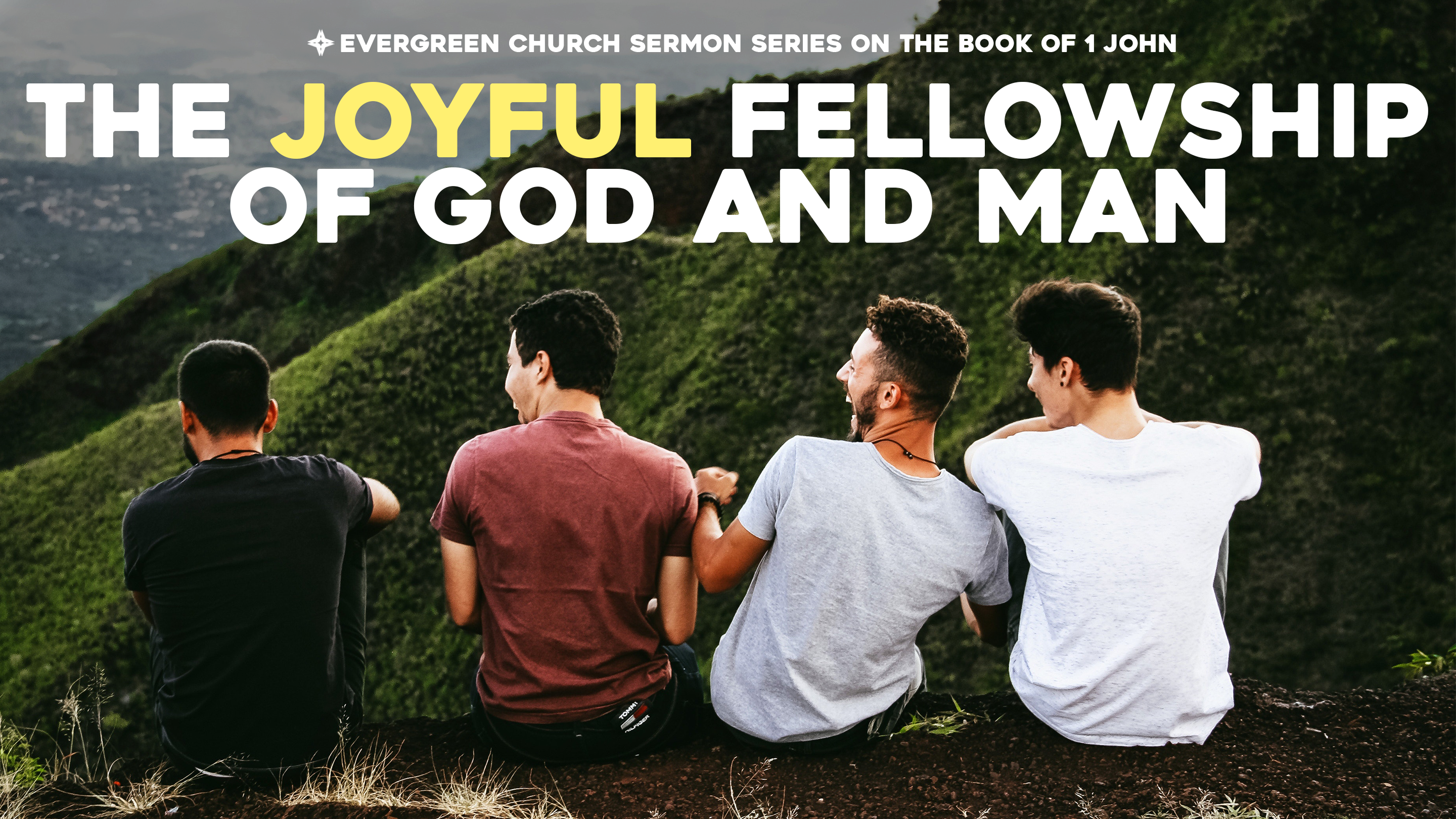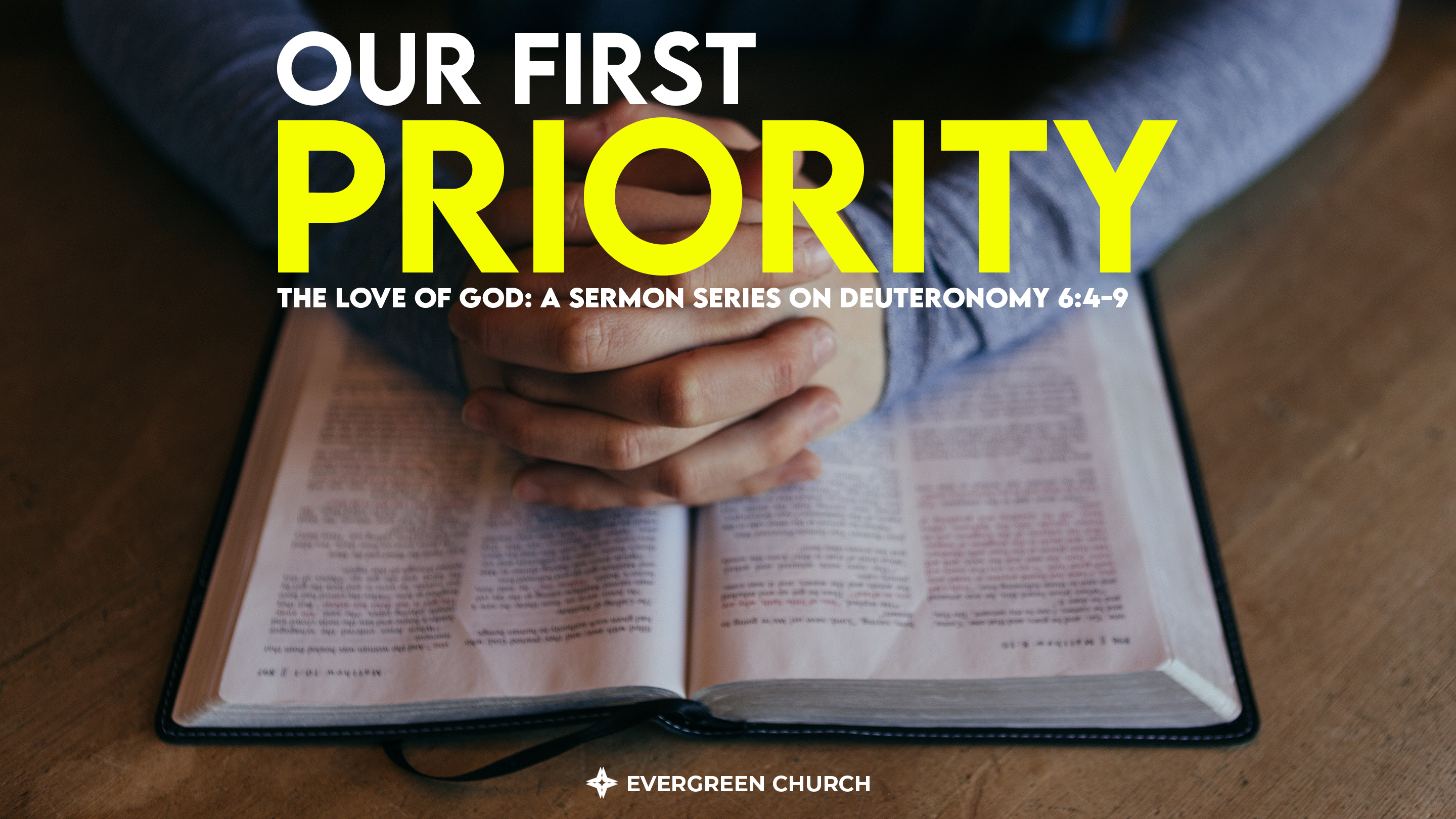
[Listen to an audio version here]
What is life all about? There is no question that it is about loving God and serving Him. This is our first and highest priority. God is the Creator and Lord of the universe. He made all things for His glory.
However, the second great purpose is loving our neighbor, loving the people around us. When people become Christians, we often tell them that they need to go to church, read their Bible, and pray. However, there is another key element, if we take the Bible’s priorities seriously: learning to love. We should say, read the Bible, pray, and love everyone, especially our brothers and sisters in Christ.
But what does it mean to love our brothers and sisters in Christ and the rest of humanity? How do we do it? This is the first lengthy section of instruction that God gives us in this letter on how to love. Why is this so important? That’s what we’ll see in our first point. Then, we will consider the opposite of love and the practice of love.
The Importance of Love
Why is love so important?
First, we see the importance of love in the priority of its teaching. John says that this is the message that they heard from the beginning. As soon as they heard about Jesus, they heard about His command to love each other.
John had said that this was not a new commandment but an old commandment. The command to love our neighbor as ourselves is found in Leviticus 19:18. It is actually imprinted on our hearts as well. We are made to love, and love is the natural state of humanity. Sin has marred it, but this makes a deformed humanity. However, the Bible and our hearts always call us back. That has been the teaching from the beginning.
Second, we see the importance of love in that it is the way of life. “We know that we have passed from death to life, because we love our brothers. Anyone who does not love remains in death” (1 John 3:18). This is the way of life.
Now, here is the question that people often have, what about people who don’t love us? Should we love them? Jesus, of course, says, “Love your enemies.” There is a reason for this. Love is the way of life. Hatred is the way of death. Just because others choose the way of death does not mean that we should. We should always follow the way of life, joyful fellowship with God and man.
This is similar to the other metaphor John used for love. He said that whoever hates walks in darkness. Whoever loves walks in the light. Just because others walk in the darkness does not mean that we should. We should always walk in the light, even if others choose to walk in the darkness. Truly living is truly loving, even if others choose not to love us back.
Third, we see the importance of love in the example of Jesus. John says that loving our neighbor is an old commandment. There is another sense, however, in which it is a new commandment. It is new in that we are now to love as Jesus loved. We love in the way of His example. “This is how we know what love is: Jesus Christ laid down his life for us. And we ought to lay down our lives for our brothers” (1 John 3:16).
Jesus loved like no one else before. He loved His own by serving them, even washing their feet, and eventually dying for them. He loved his enemies like no one before, bearing with them, and praying that God would forgive even the ones who nailed him to the cross. This is love. It is love that is light that shines in the darkest darkness. That’s the example of Jesus.
The teaching of love for our neighbor is hugely important. It is the message from the beginning. It is the way of life. It is the way of Jesus.
The Opposite of Love
John not only tells us that we should pursue love of our brethren. He warns us not to fall into the opposite. We should not hate. “Do not be like Cain who belonged to the evil one and murdered his own brother” (1 John 3:11). Now, we may have never literally murdered anyone like Cain, but the root of murder is in the hearts of all of us. It is a spirit of hatred. “Anyone who hates his brother is a murderer, and you know that no murderer has eternal life” (1 John 3:15).
Now, what is hate? In order to understand what hate is, we need to know what love is. Love is a desire for someone’s fellowship and well-being. This means, we want to connect with that person, and we want their best.
Hatred is the opposite. Hatred is when we do not desire someone’s fellowship and well-being. We don’t want to be around them or have no interest in them, and we don’t care about their well-being. In Cain’s case, we positively want to diminish it.
Why did Cain kill Abel? Because his deeds were evil, and Abel’s were good. What he tells them is that when they seek to live a godly life, people will feel the same way about them that Cain did about Abel. “Do not be surprised, my brothers, if the world hates you” (1 John 3:13). Christians should remember this.
On our part, we have passed from death to life. We know this by the fact that we love our brothers. However, we need to be on our guard! We must watch out that we do not have a cold heart towards people and an indifference to their needs. And this leads us to the final point. Love must be put into practice.
The Practice of Love
John says that love has to be put into practice. Jesus didn’t just say He loved people. He demonstrated in actions. The same should be true for us. “If anyone has material possessions and sees his brother in need but has not pity on him, how can the love of God be in him?” (1 John 3:17).
This conclusion is obvious if we understand what love is. Love is a desire for someone’s fellowship and well-being. If we truly desire people’s well-being, then we will want to see them prosper. If we can help them, we will.
Now, in our world, we know about needs all over the world. We can’t do everything for everybody. So, what should we do?
First, we have a responsibility toward our own. We should take care of our own things. As one author puts it, there is a principle of “his lamp still shines.” In other words, we maintain ourselves and have the things we need.
Second, we should trust God in giving love. God is going to take care of us, and He is going to lead us to give. I have found in my own life that God has made it clear when I should give, and I have followed what I believe is His leading. His demands have not been excessive. In addition, as I have given, He has always provided for me what I need to give. Read carefully through 2 Corinthians 9: “Now he who supplies seed to the sower and bread for food will also supply and increase your store of seed and will enlarge the harvest of your righteousness. You will be enriched in every way so that you can be generous on every occasion, and through us your generosity will result in thanksgiving to God” (10–11).
Third, err on the side of generosity. You won’t regret it. God will take care of you. Now, I’m going to use an example from my own life to illustrate a point, not to boast. There was a Mongolian here this summer who loved the guitar. He had always wanted an electric guitar. I told him he could use mine for the summer, since I did not use it that much. At the end of the summer, I had heard how much he enjoyed it. So, I decided I would just give it to him. Now, here’s why I bring that up. I have not missed that electric guitar at all, even though it was a somewhat difficult choice to give it to him. However, as I think about this guy playing it over in Mongolia, it gives me a lot of joy. I would not have had that joy, if I had kept it. I probably would have regretted not giving it to him. That teaches me to err on the side of generosity.
Now, one more point I want to make about our situation here in the United Sates. We have an abundance of food and clothing in this land. We don’t see much, if any, extreme poverty, as international organizations describe it. However, there are still a lot of needs. There is need for support, encouragement, friendship, and community. That’s where we can show our love. We may not need to give people a meal who might otherwise not have one that day. We may not need to give people clothes who otherwise might not have any. However, there is a need to experience human connection without which we can be as poor as anyone without food or clothes. That’s how we can show love.
In reaching out to people to encourage them, we can heed the call of the Apostle John, “Dear children, let us not love with words or tongue but with actions and in truth” (1 John 3:18).
Conclusion
Brothers and sisters, I want you to know that I see you loving people. I see you caring about people. I see you meeting needs. You are not indifferent to the needs around you.
What I want to encourage you in is to do it more and more. Be more deliberate. Be more wise. Be more loving.
Here’s the key takeaway from the sermon. As you think about the Christian life, think, Word, prayer, and love. Don’t think about just those actions that relate to God but also loving those around you. Think of fellowship. Think of the needs of others. That’s the transformation in our thinking we need. Our goal in our Christian life should be to be experts in biblical knowledge and also experts in human relationships. That’s how God is calling us to think here.
That is the way that Jesus is working out His life in us. That is the way He taught us through His example. “This is how we know what love is: Jesus Christ laid down his life for us. And we ought to lay down our lives for our brothers and sisters” (1 John 3:16). Amen.
Benediction: every day, we have opportunities to live like Jesus. We have people all around us. We should welcome the opportunity. We should welcome each human being we meet as an opportunity to exercise love for our neighbor. That is our calling as Christians. That is what it means to live like Jesus.
Finally, brothers and sisters, rejoice! Strive for full restoration, encourage one another, be of one mind, live in peace. And the God of love and peace will be with you. Amen.
________
Photo by juan pablo rodriguez on Unsplash








 It’s easy to look at the great figures of history and see what they’ve accomplished and think that our lives are insignificant. Who are we in the light of such great people? Who are we in light of David? Or Moses? Or Paul? Or Peter?
It’s easy to look at the great figures of history and see what they’ve accomplished and think that our lives are insignificant. Who are we in the light of such great people? Who are we in light of David? Or Moses? Or Paul? Or Peter?